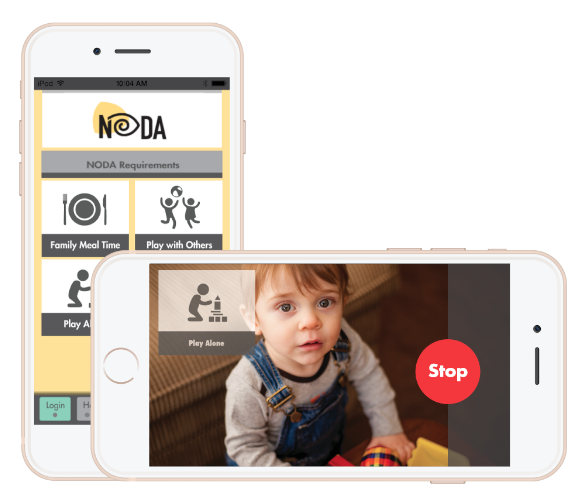
The scenario is one seen all too frequently.
Overjoyed by the birth of their first child, new parents spend the initial months being extra careful, sticking exclusively to organic veggie purees and washing every sock and onesie in chemical-free detergent. Yet soon after the baby’s second birthday, they can’t help noticing that something seems off. He rarely smiles, squirms unhappily when held and has yet to utter a single word. Fearing the worst, the couple calls their pediatrician, only to be told the next available appointment for referral is months away.
This is where NODA, the Naturalistic Observation Diagnostic Assessment, comes in. The diagnostic service, developed by Behavior Imaging Solutions in collaboration with the Southwest Autism Research & Resource Center (SARRC) and Georgia Tech, aims to reduce the long wait times and high costs typically associated with autism diagnosis.
The service utilizes smartphone technology, allowing parents to upload videos of their child in prescribed scenarios to a secure website. The footage is then assessed by expert clinicians who deliver a comprehensive diagnostic report based on information about the developmental history and specific behavioral observations in two weeks or less.
Because autism stunts a child’s development, early intervention is paramount. “The more time that is wasted on identification and diagnosis, the more catching up that child has to do,” says Christopher J. Smith, PhD, vice president and director of research for SARRC. “[NODA] is a faster procedure to get people into treatment.”
Also heavily involved with the project is Barrow Neurological Institute at Phoenix Children’s Hospital, which strives to spread the word about NODA in the hopes of improving the health and quality of life of children with neurological, bio-behavioral and mental health disorders.
“This is a wonderful program that represents a collaboration between different community organizations to optimize the care for these children,” says Dr. P. David Adelson, MD, FACS, FAAP, the director of Barrow Neurological Institute at Phoneix Children’s Hospital.
Not only will NODA facilitate the inundation of phone calls Dr. Adelson’s hospital staff receives from concerned parents, it will prevent families living in rural areas from expending time and energy traveling far distances for in-person diagnoses and specialized care that may be unnecessary.
Study results, which have been extremely promising thus far, are currently awaiting publication. NODA has shown an 88.2 percent agreement with the current face to face diagnostic method, and 95 percent of parents perceive it as easy to use. Things may be in the early stages, but it looks like the 12 years spent developing this revolutionary service are about to pay off.
For more information about NODA, visit behaviorimaging.com/NODA